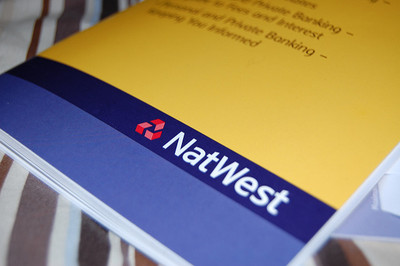Banks are dead - but who's to blame?

As of late March, the days when a customer could waltz into their high-street bank and demand to speak to its manager may be numbered. It’s not so much that banks are going away (there’s probably a petition out there to that effect, though) but shifting gear to keep up with the rest of the world. Despite all its advances into mobile banking and contactless payments, the bank is still something of a modern dinosaur on the high street.
Mobile Payments
According to the BBC, the Royal Bank of Scotland (RBS) and NatWest will soon close a combined 158 brick and mortar banks due to a handful of statistics; namely, in-person transactions have fallen 43%, subscribers to the RBS’ online service have almost doubled in three years, and the number of interactions between the banks and their customers is “20 times” higher online than in branch. Put another way – only squares do their banking on the high street.

The shift towards a digital-first world of finance has been underway for a while. PayPal proved a lonely trailblazer for some time and has stupendous (and climbing) revenue of about $3bn as a consequence, but Apple, Samsung, and Google recently joined the world of mobile payments and digital wallets too, releasing apps for contactless purchasing in 2014, 2015, and 2016 respectively. In the grand scheme of things though, it was a bit late.
Bitcoin
The archetype for mobile payments appeared in 2009 with Satoshi Nakamoto’s Bitcoin. A type of digital cryptocurrency verified, created, and maintained through computers solving math problems, Bitcoin earned a name for itself as the choice currency of casinos, hipsters, and tech geeks. However, its viability as day-to-day money was demonstrated by UK store CeX, which accepted it exclusively for a day at the expense of the pound back in 2014. They still accept it now, but in addition to pound sterling.
With the currency recently surpassing gold for value, Bitcoin probably earned a lot of fans with the turn of the New Year but the token maintained a friend in the casino industry for much of its infancy. BitCasino was the first licensed Bitcoin iGaming brand, offering everything from live blackjack and lotteries to classic slot machines like Wizard of Gems. It’s also one of the more active websites in the sector; BitCasino’s blog page (opens in a new window) indicates that new games are added all the time, including 3D titles.
Ulster Bank
But what does all that mean for in-person banking? The idea of organising your own finances at home is a nice once but an entirely online banking service is impossible – there will always be somebody that handles cash transactions exclusively (like market traders) and needs somewhere other than a mattress to stuff it – but the traditional bank is likely to become more of a kiosk in future. Ask yourself a question: when was the last time you went into a bank to do something other than deposit a birthday tenner?

In Ireland, Ulster Bank recently pulled the shutters on 22 branches for the same reason RBS has – digital transactions outnumber face-to-face ones by about six-to-one, and daily customer numbers average around thirty – so the fading popularity of high street banking isn’t endemic to English and Scottish firms. Banks simply don’t need a physical presence beyond a call center and a secure deposit box in a city centre. RBS’ plan for the future paints a picture of the high-street bank as an information center, a stopgap furnishing customers with the skills and knowledge required to use online services.
The above is an inevitable and arguably overdue consequence of the rise of digital payments and online banking. Sadly, it may also mean that there's one less queue on the high street for Brits to get excited about.



